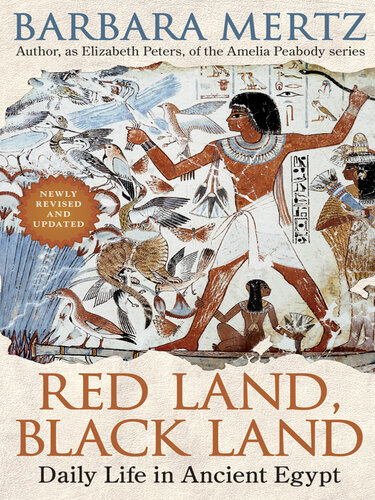

Most ebook files are in PDF format, so you can easily read them using various software such as Foxit Reader or directly on the Google Chrome browser.
Some ebook files are released by publishers in other formats such as .awz, .mobi, .epub, .fb2, etc. You may need to install specific software to read these formats on mobile/PC, such as Calibre.
Please read the tutorial at this link: https://ebookbell.com/faq
We offer FREE conversion to the popular formats you request; however, this may take some time. Therefore, right after payment, please email us, and we will try to provide the service as quickly as possible.
For some exceptional file formats or broken links (if any), please refrain from opening any disputes. Instead, email us first, and we will try to assist within a maximum of 6 hours.
EbookBell Team

5.0
80 reviewsIn Red Land, Black Land, she transports us back thousands of years and immerses us in the sights, aromas, and sounds of day-to-day living in the legendary desert realm that was ancient Egypt. Who were these people whose civilization has inspired myriad films, books, artwork, myths, and dreams, and who built astonishing monuments that still stagger the imagination five thousand years later? What did average Egyptians eat, drink, wear, gossip about, and aspire to? What were their amusements, their beliefs, their attitudes concerning religion, childrearing, nudity, premarital sex? Mertz ushers us into their homes, workplaces, temples, and palaces to give us an intimate view of the everyday worlds of the royal and commoner alike. We observe priests and painters, scribes and pyramid builders, slaves, housewives, and queens—and receive fascinating tips on how to perform tasks essential to ancient Egyptian living, from mummification to making papyrus. An eye-opening and endlessly entertaining companion volume to Temples, Tombs, and Hieroglyphs, Mertz's extraordinary history of ancient Egypt, Red Land, Black Land offers readers a brilliant display of rich description and fascinating edification. It brings us closer than ever before to the people of a great lost culture that was so different from—yet so surprisingly similar to—our own.